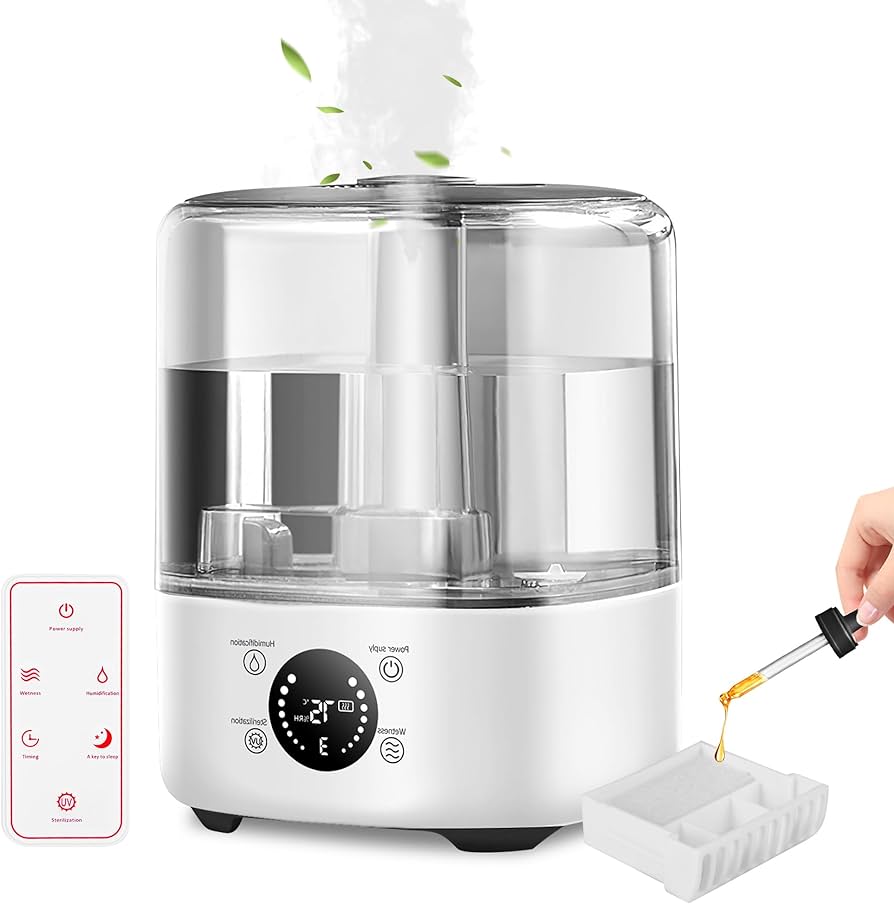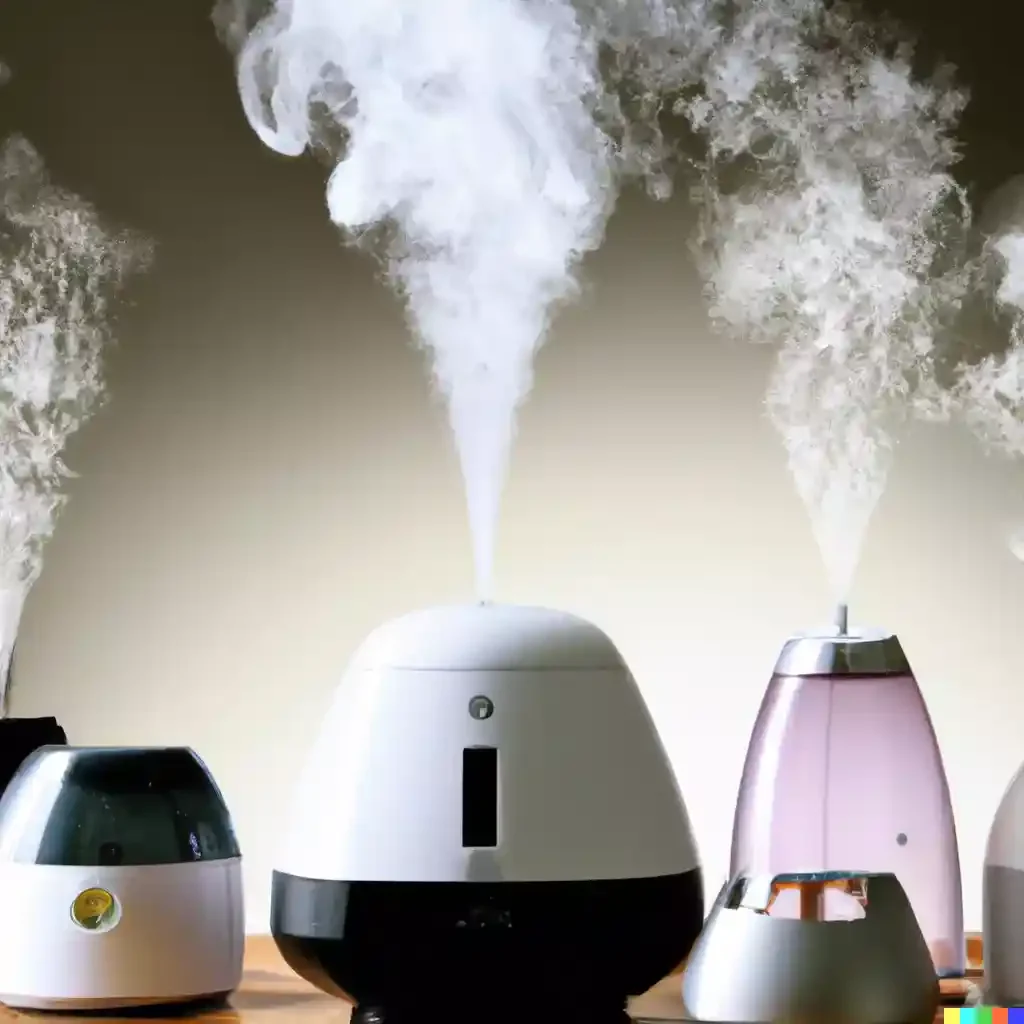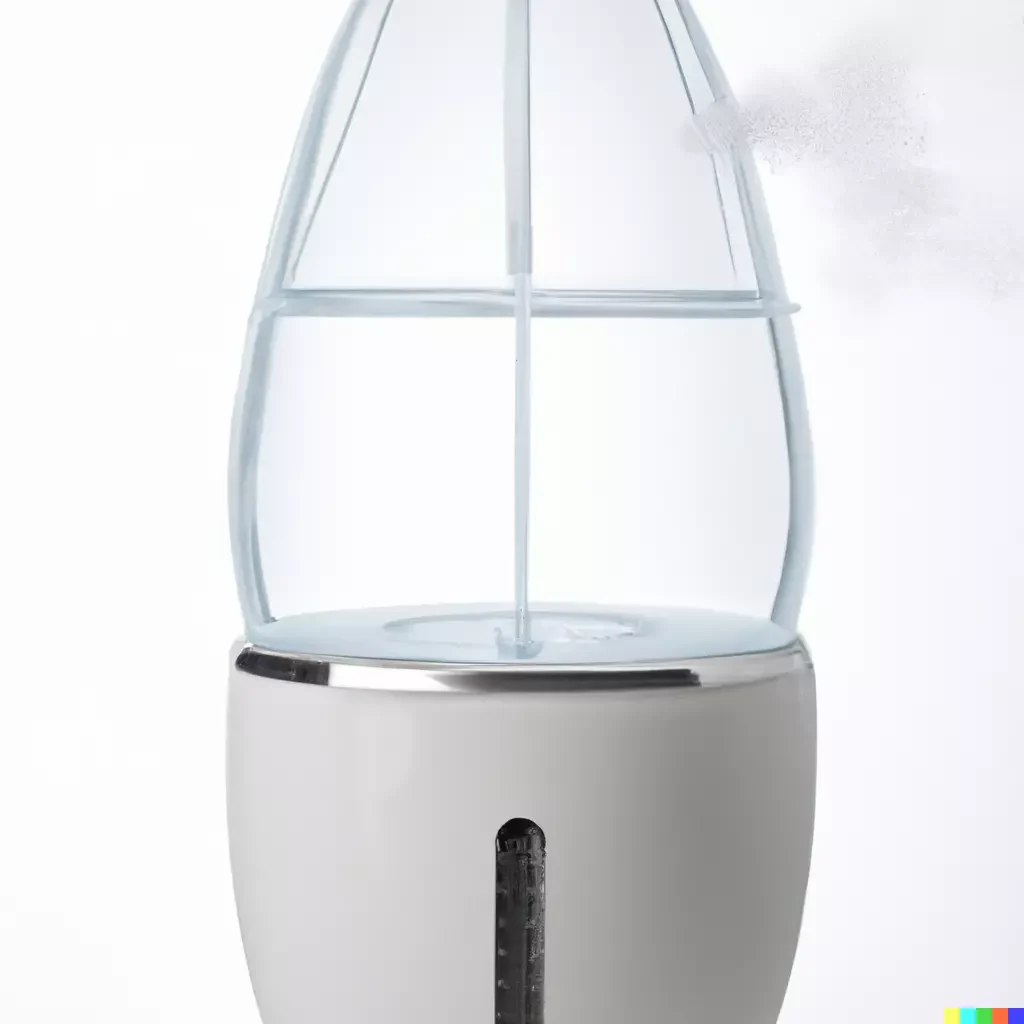Yes, diffusers add humidity by dispersing water vapor into the air, which increases the moisture level. Diffusers are a popular tool for adding humidity to the air in a room.
By dispersing water vapor, diffusers can help to combat dryness and improve overall comfort. Additionally, they can benefit respiratory health, as higher humidity levels can alleviate symptoms of allergies and asthma. However, it’s essential to monitor the humidity levels in the room to ensure they stay within a healthy range, as excessive humidity can lead to issues such as mold growth.
When using a diffuser, be sure to follow the manufacturer’s guidelines and consider the size of the room to determine the appropriate amount of time to run the diffuser for optimal humidity levels.
Understanding Diffusers And Humidity Control
Understanding Diffusers and Humidity Control is crucial for maintaining a comfortable indoor environment. In this blog post, we will delve into the interaction between diffusers and humidity, exploring the functions of diffusers and the role of humidity in indoor spaces.
How Do Diffusers Work?
Diffusers are devices designed to disperse essential oils into the air, creating a pleasant aroma and potentially providing therapeutic benefits. They work by breaking down essential oils into tiny particles and then dispersing them into the air in the form of a fine mist. This mist can be inhaled, allowing the aroma and properties of the essential oils to affect the body and mind.
The Role Of Humidity In Indoor Environments
Humidity plays a crucial role in indoor environments, affecting not only comfort but also health and well-being. Proper humidity levels can help prevent respiratory issues, alleviate allergies, reduce the spread of airborne viruses, and protect wooden furniture and musical instruments. Conversely, low humidity can lead to dry skin and irritated nasal passages, while high humidity can encourage the growth of mold and bacteria.
Do Diffusers Increase Humidity?
Do diffusers increase humidity? Understanding the impact of diffusers on humidity levels is essential for maintaining a comfortable indoor environment. Let’s explore the mechanics of moisture distribution and the effects of diffusers on indoor air quality.
Mechanics Of Moisture Distribution
Diffusers use ultrasonic vibrations or heat to disperse scents into the air, releasing tiny water droplets that boost humidity. Ultrasonic diffusers create a fine mist with high-frequency vibrations, while heat diffusers use warmth to evaporate essential oils. These actions redistribute moisture, making the air more comfortable and healthier, particularly in dry conditions.
Effects On Indoor Air Quality
Adding added moisture through diffusers can have several positive effects on indoor air quality. Maintaining optimal humidity levels can help alleviate respiratory issues, reduce static electricity, and prevent dryness in the skin and nasal passages. However, excessive humidity levels can lead to mold growth and an increase in dust mites, impacting air quality negatively. It is crucial to strike a balance to ensure that the humidity levels remain within the recommended range for a healthy indoor environment.
Types Of Diffusers For Humidity Control
Humidifiers add moisture to the air, making them a valuable tool for controlling humidity levels. Various types of diffusers can be used for humidity control, each offering unique benefits. Understanding the different types of diffusers can help you choose the best option for your specific needs.
Ultrasonic Diffusers
Ultrasonic diffusers are popular for their ability to create a fine mist using ultrasonic vibrations. These diffusers are designed to add moisture to the air, making them an excellent choice for increasing humidity levels in a room. They are also known for their quiet operation, making them suitable for use in bedrooms and offices. Ultrasonic diffusers are available in a wide range of styles and sizes, allowing you to find the perfect option for your space.
Evaporative Diffusers
Evaporative diffusers work by blowing air through a pad or filter soaked with water or essential oils. As the air passes through the wet pad, it picks up moisture and disperses it into the surrounding environment. While evaporative diffusers are primarily used for dispersing essential oils, they can also help in adding humidity to the air. These diffusers are often portable and easy to use, making them a convenient option for small spaces or travel.
Nebulizing Diffusers
Nebulizing diffusers use pressurized air to break down essential oils into a fine mist, creating a powerful and concentrated aroma. While their primary function is to disperse essential oils, nebulizing diffusers can also add humidity to the air. These diffusers efficiently distribute moisture in the air while maintaining the therapeutic properties of essential oils. Nebulizing diffusers are often chosen for their strong scent dispersion and ease of use.
Practical Tips For Using Diffusers For Humidity
Diffusers are not just for adding a pleasant aroma to your living space; and they can also effectively increase the humidity levels in the air. Proper use of diffusers can help maintain a balanced and comfortable environment in your home. Here, we’ll explore some practical tips for using diffusers to add humidity to your indoor air effectively.
Placement And Coverage
- Choose an open area: Place the diffuser in a central location within the room to ensure the humidified air is distributed evenly.
- Elevated position: For optimal coverage, position the diffuser at a higher level, such as on a shelf or table, to disperse the mist more effectively.
- Avoid placing near electronics: Keep the diffuser away from electronic devices to prevent moisture from accumulating on them.
Selecting Essential Oils For Humidity
- Hydrating essential oils: Choose essential oils with hydrating properties, such as lavender, eucalyptus, or cedarwood, to promote moisture in the air.
- Avoid citrus oils: Citrus oils can have a drying effect, so it’s best to avoid using them when aiming to increase humidity levels.
- Experiment with blends: Create custom oil blends that not only add fragrance but also contribute to maintaining an ideal level of humidity.
Maintenance And Considerations
Proper maintenance and careful considerations are crucial for ensuring that humidifier diffusers function effectively and maintain the desired humidity levels in the environment.
Cleaning And Preventing Mold Growth
Regular cleaning of humidifier diffusers is essential to prevent the growth of mold and bacteria. Unplug the diffuser and disassemble it carefully. Use a soft brush or cloth to wipe away any residue or build-up. To prevent mold, consider using distilled water instead of tap water, which can contain minerals that promote mold growth. Additionally, it’s important to cleanse the diffuser with a vinegar solution or a commercial cleaning agent recommended by the manufacturer. Ensure the diffuser is thoroughly dry before reassembling and using it again.
Monitoring And Adjusting Humidity Levels
Regularly check the humidity levels in the room where the diffuser is being used. Utilize a hygrometer to measure the humidity levels and make adjustments as necessary. It’s important to maintain a comfortable humidity range, usually between 40-60%. If the humidity levels are too high, which can lead to mold growth and mildew, lower the diffuser output or reduce the operating time. Conversely, if the humidity levels are too low, increase the output of the diffuser. This monitoring and adjustment process will ensure that the environment remains comfortable and free from humidity-related issues.
Frequently Asked Questions For Do Diffusers Add Humidity
Do Diffusers Add Moisture To The Air?
Yes, diffusers add moisture to the air through the process of evaporation, which increases humidity levels.
How Do Diffusers Increase Humidity?
Diffusers increase humidity by dispersing water vapor into the air, effectively raising the moisture content.
Can Diffusers Help With Dry Indoor Air?
Yes, diffusers can help alleviate dry indoor air by emitting fine water particles, improving the overall humidity.
Are Diffusers Effective For Increasing Moisture?
Absolutely, diffusers are effective for increasing moisture levels, creating a more comfortable environment.
What Type Of Diffuser Is Best For Adding Humidity?
Ultrasonic diffusers are best for adding humidity as they disperse water particles evenly and effectively.
Conclusion
To conclude, diffusers can indeed add humidity to the air, benefiting individuals with dry skin and respiratory issues. Whether using a humidifier or a diffuser, understanding their purpose and effects is crucial in choosing the right option for your needs.
Proper maintenance and usage can ensure optimal performance and health benefits.





